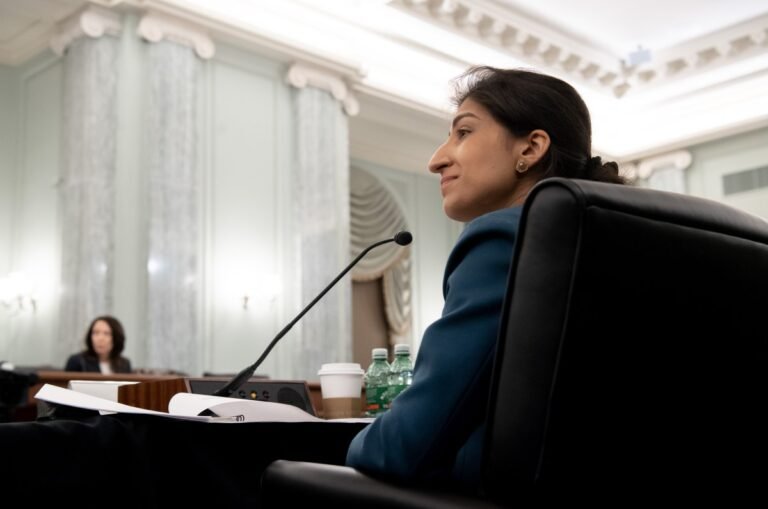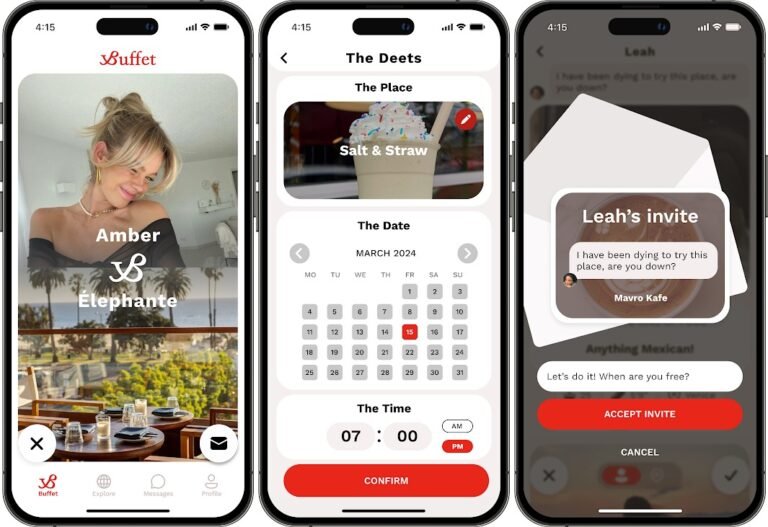
The U.S. Federal Trade Commission is focusing its efforts on going after Big Tech, according to FTC Chair Lina Khan, who spoke at TechCrunch’s Strictly VC event in Washington, D.C., on Tuesday.
Khan said the agency is focused on going after the players that are doing the biggest harm, as opposed to just increasing the number of cases that it brings forward.
“One thing that’s been important for me is to make sure that we’re actually looking at where we see the biggest harm,” Khan said.
The FTC and the Department of Justice have struck a deal to investigate Microsoft, Open AI and Nvidia over potential antitrust violations, according to The New York Times.
The types of cases that the FTC selects can act as a deterrent, she said, noting that the FTC is already seeing that happen.

Allison Cohen is the senior applied AI projects manager at Mila, a Quebec-based community of more than 1,200 researchers specializing in AI and machine learning.
One of the projects I managed involved building a dataset containing instances of subtle and overt expressions of bias against women.
I learned firsthand why this process is fundamental to building responsible applications, and also why it’s not done enough — it’s hard work!
What advice would you give to women seeking to enter the AI field?
How can investors better push for responsible AI?

Welcome to Startups Weekly — your weekly recap of everything you can’t miss from the world of startups.
Despite this general downturn, certain segments like generative AI continue to attract significant funding, indicating a selective yet substantial interest in specific AI applications.
AI investment is slowing down for a few reasons, like the crowded market and the steep costs of building big AI models.
Investors are getting pickier and want to see real, solid returns instead of just throwing money at hopeful growth.
(That isn’t stopping them from raising billion-dollar funds focusing on AI, of course.)

A new social media app called Indaband lets musicians and vocalists collaborate with others and make music with people all over the world.
You can record and mix unlimited video tracks in different sessions using the app’s multi-track video studio and share them with your community.
The app is the brainchild of CEO Daniel Murta, CTO Andrews Medina, Head of Engineering Helielson Santos and Design Leader Emerson Farias.
They all used to get together to play music during happy hours after work, and once the pandemic hit, they came up with the idea for Indaband so they could still play music together while in quarantine.
Circles will allow users to build their own communities on the app and possibly even hold live events.

Today, four out of 10 Formula 1 teams use an evolution of that same technology.
However, where Formula 1 cars rely on 1,000-horsepower hybrid V6 engines, Baqué’s first practical application of the technology was human-powered.
At its core, NCS helps engineers avoid potential aerodynamic pitfalls while pushing them into directions they might not have considered.
NCS will then dig into its neural network to suggest improvements or modifications, possible paths in a 3D game of choose-your-own-adventure.
But like in most sports, success is cyclical for Formula 1 teams, and right now, Williams is very much in a rebuilding phase.

TikTok is working towards launching a new app called TikTok Notes that will allow users to post images in an apparent bid to rival Instagram, a service best known for its static-photo sharing feature.
Instagram, of course, has expanded into video and stories itself, taking pieces of other services and incorporating them into its own product.
As is nearly every social service you can imagine.
If it works for one social media service, expect the rest to follow in some manner at some point — probably sooner rather than later.
Expanding a feature set can bolster engaged time, and therefore how much revenue a social media service can earn.

A new app called Buffet is aiming to address the loneliness epidemic by helping users meet new people by quickly matching them with a person and a place to meet up (Think Tinder + OpenTable).
Buffet aims to help users meet likeminded individuals, whether they’re looking for a new friend, romantic partner or gym buddy.
So we put one foot in front of the other and stared building Buffet.”To get started with Buffet, users enter five of their interests, such as motorcycles, horseback riding or reading.
Buffet encourages people to go beyond a chatbox and digital communication and actually meet up in the real world.
Hacking believes that if Buffet can win over the average 25-year-old female professional, it can win over anyone.

The right to repair has been a hot topic for several years now, hitting a kind of critical mass with domestic and international legislation.
Advocates note that these proposals give users more control over their own property, while expanding products’ shelf life and reducing e-waste.
Fairphone is, perhaps, the most prominent hardware company to make repairability the foundation of its consumer electronic design ethos, rather than a simple afterthought.
In the consumer electronics world, right to repair has largely focused on handsets and PCs.
But anything that can help reduce e-waste and give users more control over these products is probably a net positive.

Kiki World, a beauty startup launched last year, wants consumers to co-create products and co-own the company with the help of web3 technology.
Kiki co-founder Jana Bobosikova said she believes that being a loyal user of a brand in the Web 2.0 world could be a net negative experience.
Kiki is flipping that model by allowing its community members to vote on the features they want before the beauty products are made.
Although members’ product votes are recorded on Ethereum, Bobosikova said some participants don’t need to know they are taking action on blockchain.
But, as Simpson pointed out, Kiki has plans to eventually expand beyond the world of beauty.

The AI boom, love it or find it to be a bit more hype than substance, is here to stay.
That means lots of companies raising oodles of dollars, a healthy dose of regulatory concern, academic work, and corporate jockeying.
For startups, it means a huge opportunity to bring new technology to bear on a host of industries that could use a bit of polish.
But if you read the news, you might notice that men are the far and away most cited, and discussed players in AI today.
So, TechCrunch’s Dominic-Madori Davis and Kyle Wiggers decided to go out and talk to women working in AI to learn more about their work, how they got into the world of artificial intelligence, and more.













